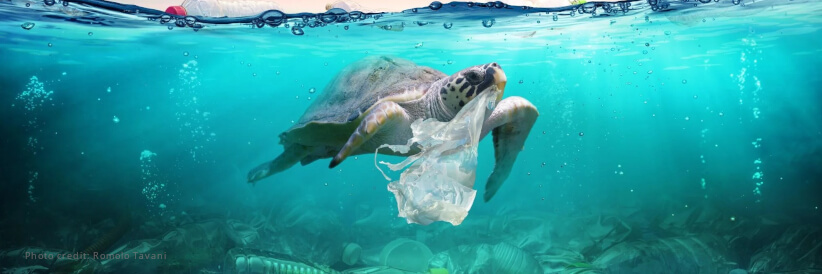Global leaders representing UN member states, private sector companies, and civil society at the UN Ocean Conference affirmed the urgent need to invest in ocean protection and restoration, with the increasing severity of the linked crises of climate change and declining ocean health intensifying calls for swift, transformational change in the months ahead.
The conference underscored the severity of the multiple threats facing the world’s ocean, including overfishing, plastic pollution, and climate change. New figures released by the UN Food and Agriculture Organization show that 35.4% of fish populations are overfished, up from 10% in the 1970s. WWF calls on leaders to seize the momentum created at the conference and resolve long-standing issues surrounding the protection of the high seas, plastic pollution, and harmful fisheries subsidies by putting in place and ratifying swiftly robust global treaties.
“Restoring ocean health requires urgent action at all levels, from all sectors – local to global. We have no time left for incremental change. There is no doubt that from the last Ocean Conference in 2017 the ocean has risen in political, corporate, and social agendas. But the ocean, climate, and coastal communities worldwide need real progress, not promises when it comes to ocean health,” said Marco Lambertini, Director General, WWF International.
“This week we welcome important commitments to expand protection for marine and coastal ecosystems, and to safeguard the ocean commons, like the deep sea, against emerging threats.”
In particular, WWF commends actions that go above and beyond previously stated commitments, such as Colombia announcing new protections for its land and waters, achieving a target to protect 30% of the country eight years before its goal date of 2030.
WWF also warmly welcomes the initiative of several Pacific Island nations on forging an alliance for a global moratorium on deep seabed mining. This emphasizes the deep social, cultural, and economic links between their people and the ocean. French President Emmanuel Macron speaking in Lisbon called for a legal framework to stop deep seabed mining from going ahead. WWF strongly supports growing calls for a moratorium on this destructive extractive industry.
To support accelerated action, WWF calls on political leaders and the finance sector to scale up investment in ocean restoration and climate solutions for coastal communities.
The Global Environment Facility has committed US$7.8 million for the Coral Reef Rescue Initiative, a partnership led by WWF. The initiative will focus efforts to sustain and restore the health of coral reef ecosystems in the face of climate threats, while also building the resilience of communities dependent on coral reefs.
“We leave Lisbon with great momentum, but the real test of success for the second UN Ocean Conference will come in the months ahead. WWF wants to see global policies like robust new treaties for the high seas and plastics, continued action to curb harmful fisheries subsidies, and achieving 30% protection of the world’s ocean,” said Pepe Clarke, Oceans Practice Lead, WWF International.
“Local solutions must also receive investment in order to scale up and have lasting benefits for communities. This means expanding the rights of small-scale fishers to manage the resources on which they depend, and other sustainable development pathways.”

